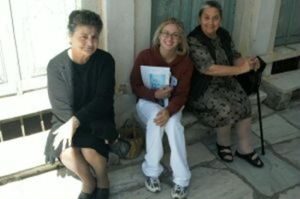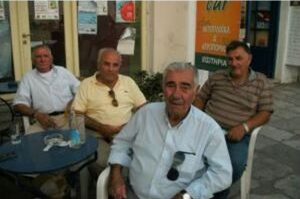Current smokers were defined as those who smoked at least one cigarette per day or had stopped cigarette smoking during the past 12 months. Former smokers were defined as those who previously smoked, but had not done so for a year or more. The remaining participants were defined as rare or non-current smokers. Passive smokers were those exposed to environmental tobacco smoke (at the workplace, at home, in restaurants, etc.) for more than 30 minutes per day.
Dietary habits
Dietary habits assessed through a semi-quantitative, validated and reproducible food-frequency questionnaire. The frequency of consumption of various food groups and beverages (i.e. meat and products, fish and seafood, milk and other dairy products, fruits, vegetables, greens and salads, legumes, cereals, coffee and tea and soft-drinks) was assessed on a daily, weekly or monthly basis. To evaluate the level of adherence to the Mediterranean diet, the MedDietScore (possible range 0-55) was used.
Physical activity
Physical activity is evaluated using the shortened version of the self-reported International Physical Activity Questionnaire (IPAQ).
Lifestyle behaviors
Hours of sleep per day, having mid-day naps (siesta), number of meals per day, preparation of food.
Health care system access
Access to health care system, access to nutritionists / dietitians, use of drugs, drug suppliers.



